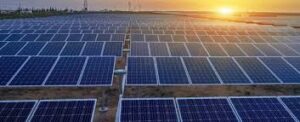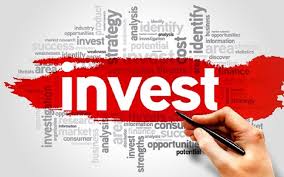Alternative Energy Sources for Powering Businesses in Nigeria
 Alternative Energy Sources for Powering Businesses in Nigeria
Alternative Energy Sources for Powering Businesses in Nigeria
It is no lie that Nigerians are used to either living without power, or providing their own source of power. This is so because Nigerian power sector is so poor, or better put, Nigeria does not produce enough power supply for the nation’s power needs. According to the US Power Africa program, Nigeria currently has an installed power capacity of about 12,500 Megawatts, less than a quarter of installed capacity in South Africa.
Who could imagine that a country with about quarter of Nigeria’s population generates more power than she does?
And to think that the so-called 12,500 Megawatts installed are lying somewhere in several gas-fired power facilities unused is crazy! This is a challenge to Nigerians, and especially business owners. Considering that many businesses have to spend a lot on generators. According to Clement Iyambe: A report in THISDAY publication of Thursday, July 30 2009 stated that MTN spent N13 billion on generators in eight years of operation. Each base station is powered by two generating sets, bringing to about 10,000 the number of generators for MTN 5,000 base stations across the country, as at the time of the report. The report further put the cost of diesel and maintenance of these large numbers of generators at N500 million per month.
Money spent on costs of generators alone could affect the function and profitability of a business, and this is why some new ideas about alternative energy sources became an important area of study. Since electricity is generated from various sources like hydro, fossil, organic fuel, coal, therma, solar, wind, biomass etc., new inventions are coming into existence. Nigeria currently relies on hydro and thermal sources for generating power. Canada is reported to be the largest generator of hydropower whose source comes majorly from dams, stream or rivers. Nigeria generates power from dams too, except that the power generated is not sufficient for the populace.
In a bid to make life easy for Nigerians and profitable for business owners, alternative sources of generating power have been invented. Solar and wind are currently the most common sources.
Solar energy: solar energy could help reduce the use of petrol or diesel generators. It was reported that after believing we could generate a clean solar energy in Nigeria, a pharmacist at the University of Nigeria, Nnsukka embarked on a project, which was solely focused on the Nigeria solar market. He converted mimosa’s (an organic medicinal African weed commonly known as “touch and die”) sensitivity into sunlight after coming to an understanding that mimosa could be used in executing his project. Now he calls the project mimosa solar panels. He said “This plant is a common weed around us, children sometimes play with it. When it is touched, it closes itself and after sometime it will reopen. So as a pharmacist, I wasn’t really looking at the weed, I was fascinated at its reaction to sunlight and got more interested in what’s making it react to radiation. I was certain this would be a huge business opportunity that will not only change the solar power market but also provide jobs for our labor market.” Like his, there are also other new inventions. These budding inventions means two things for the Nigerian market, especially the business owners:
 Alternative Energy Sources for Powering Businesses in Nigeria
Alternative Energy Sources for Powering Businesses in Nigeria
- There is hope for businesses out there: with the creation of alternative power sources, there is a ray of hope for every business to survive. It means less money to spend on buying and repairing generators, little or no money spent on refueling generators. With the invention of solar power, businesses will generate more profit as solar is less expensive for them in terms of power.
- Invest: the introduction of renewable energy sources like solar and wind would go a long way in contributing to the development of the country’s economy. So, this could be a good fit for entrepreneurs who are looking to invest in an emerging sector. According to the NCC, India adopted a plan with an implementation strategy for the electricity sector to produce 7200 megawatts by 2020. Though India started its renewable energy program way back in 1981, the government established the full-fledged ministry, The Ministry of Non-Conventional Energy Sources, now called the Ministry of New and Renewable Energy (MNRE), in 1992. The fact that India is the first country to establish such a ministry signals the importance given to renewable energy sources by the government in its future plans to meet energy needs. Traditionally, renewable power generation capacity has been set up largely through private sector investment. According to estimates, more than 70 per cent investment in this sector has come from private players. In future also, the private sector is expected to lead investments in this sector. This is going to open up huge opportunities for the economy. Of course, the government will have to put in place strong, clear and investor- friendly legal, policy and regulatory framework. Looking at situation from the ideas presented, it would be a favorable market for private firms or entrepreneur who would later venture into the renewable energy market.
 Alternative Energy Sources for Powering Businesses in Nigeria
Alternative Energy Sources for Powering Businesses in Nigeria
Read Also: 25 Ways to Sell Online In Nigeria
It is of utmost importance, if we want to achieve a positive output with the implementation of alternative renewable energy that, national priorities and policy ambitions be continually strengthened to put Nigeria along with the rest of the world on track to meet the energy targets for 2030 (it was reported that between 2000 and 2016, the population of people who live with access to electricity increased from seventy eight percent to eighty seven percent, dropping the absolute number of people living without electricity to below one billion. A better result is expected by 2030. By 2030, it is expected that everyone has access to electricity.)
Powering businesses in Nigeria through alternative sources could be the only one solution that business owners need in running a profitable business. Considering the amount of money every entrepreneur spends on diesels and petrol. This is why we should endeavor to encourage the government in promoting every form of alternative energy. This will not only benefit our businesses, but also Nigeria at large.
Hope you enjoy this article?
Share your thoughts in the comment session.
Contact us today for your business consultancy and business advisory services. We can help you fine tune your idea, structure your business, market your business, train your staff, consult on your retirement plan, coach you for financial success. We also write business plan and help with fund raising strategies and Grant applications. We can help you start, grow and expand your business.
Call or WhatsApp us now on 081 0563 6015, 080 7635 9735, 08113205312 or send email to dayohub@gmail.com and we will solve any of your business problem.
Related